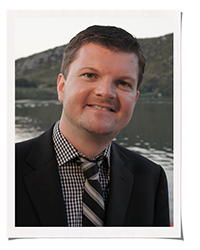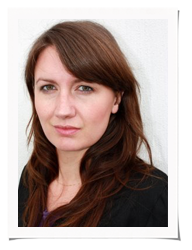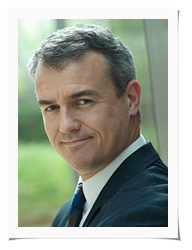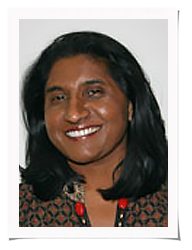Organised by Aidan Gilligan (IRL), Founder, CEO SciCom - Making Sense of Science; Member of the Governing Board of Euroscience. Co-organised by: Human Sciences Research Council (HSRC) of South Africa.
Wednesday 9th December, 2015: 11h00 – 12h30
Science Forum South Africa
Session Description
In theory, access to breakthroughs in health science is a global public good. In practice, your life expectancy and quality of life depends on where you live and what socio-economic standing you have. This session address a wide variety of complex issues, ranging from individual lifestyle choices to environmental exposure factors, as well as the affordability of medical and health-care facilities.
Our first case-study spotlights the rise in various types of diseases linked to substance addictions with a particular emphasis on lessons learned from South Africa’s tobacco control measures. The WHO estimates that 1.5 billion people alive today risk dying prematurely due to tobacco, alcohol and drug use. In 2015, 6 million people will die from smoking, 3.3 million from alcohol and 200,000 from drug use, excluding associated violent deaths. That is the same as the entire population of Rwanda, Tunisia, Guinea, Benin or Burundi disappearing each year. Our second case-study examines the pressing need to make western advances in maternal and infant care and tackling infectious morbidities amongst young people more readily available elsewhere. Accepting that societal problems are not necessarily problems with purely scientific solutions, speakers and discussants will argue that meeting health challenges demands not only scientific discovery, but greater inclusiveness, dialogue and acceptance of the social sciences to better understand something wholly unscientific: human behaviour.
SESSION PRESENTATION DOWNLOADS: CLICK HERE
 |
 Organiser: Aidan Gilligan (IRL), Organiser: Aidan Gilligan (IRL), Founder, CEO SciCom - Making Sense of Science, Member of the Governing Board of Euroscience. 121 Rue Franklin, 1000, Brussels, Belgium. Phone Number: +32 474042602; Email: This email address is being protected from spambots. You need JavaScript enabled to view it. Aidan Gilligan has over 15 years' top-tier experience in communicating international science. His drive is advancing understanding for science around the world. His speciality is spearheading comprehensive campaigns that accentuate facts above perceptions about often difficult to communicate issues. Aidan has project-managed over one hundred press and tailored stakeholder events, plus numerous scientific symposia at the nexus of science and society. In so doing, he works closely with policy-maker teams up to Chief Science Adviser and Ministerial level, while forging strong ties with representatives of global media associations and membership organisations. |
 |
 Co-Organiser: Human Sciences Research Council (HSRC) of South Africa Co-Organiser: Human Sciences Research Council (HSRC) of South Africahttp://www.hsrc.ac.za/en The HSRC was established in 1968 as South Africa’s statutory research agency and has grown to become the largest dedicated research institute in the social sciences and humanities on the African continent, doing cutting-edge public research in areas that are crucial to development. Our mandate is to inform the effective formulation and monitoring of government policy; to evaluate policy implementation; to stimulate public debate through the effective dissemination of research-based data and fact-based research results; to foster research collaboration; and to help build research capacity and infrastructure for the human sciences. The Council conducts large-scale, policy-relevant, social-scientific research for public sector users, non-governmental organisations and international development agencies. Research activities and structures are closely aligned with South Africa’s national development priorities. - See more here |
 |
 Moderator: Linda Nordling (SA), Moderator: Linda Nordling (SA), Founding Editor, Research Africa & Journalist, SciDevNet Linda Nordling is a science and policy journalist based in Cape Town, South Africa. She specialises in writing about research funding flows in Africa for international publications like Nature and SciDev.Net. She is the founding editor of Research Professional Africa, a research funding and policy information platform for universities. She has also written for The Guardian, the New Scientist, the Cape Times and Chemistry World. |
 |
 Discussant: Prof Max Bergman, Discussant: Prof Max Bergman, Chair of the Social Research and Methodology Department of Social Sciences, University of Basel, Switzerland. Chair of Social Research and Methodology at the University of Basel, Switzerland. Previous academic affiliations include the Universities of Cambridge, Essex, Florence (European University Institute), Geneva, Johannesburg, Lausanne, Pretoria, Stellenbosch, St. Gall, the Witwatersrand, and Zurich. At present, I am also Extraordinary Professor at the Universities of the Western Cape and the Free State, South Africa, and Visiting Professor at the University of International Business and Economics, China. My main focus is on sustainability and global studies, particularly the interdependence of society, business, and government in a globalized world. In pursuing policy-relevant and change-oriented research relating to societal sustainability, my team and I are working on a new social science research approach, entitled Social Transitions Research (STR). I also teach and publish on qualitative, quantitative, and mixed methods research, and I chair the World Sustainability Forum – the next WSF event will take place in Cape Town in January 2017. |
 |
 Discussant: Dr Stéphane Hogan, Discussant: Dr Stéphane Hogan, Science Counsellor, Delegation of the European Union to the African Union. Stéphane Hogan is the Science at the EU Delegation to the African Union in Addis Ababa since September 2012. His role is to foster cooperation in between the EU and the AU, both at policy level and through the Horizon 2020 and African Union Research Grants programmes. Prior to that Stéphane was Head of Unit for Biotechnology for Health and subsequently Head of Unit for Strategy in the Health Directorate of DG Research. This unit was responsible for planning and coordination of the Health theme of FP7, as well as cross-cutting issues such as international cooperation, industry participation, communication and ethics. Stéphane has a background in genetics and biotechnology. He studied in Ireland and Belgium before working in science communications for the private sector in France and joined the European Commission in 1996. In 2002 he completed an MBA with the Open University. LinkeIn profile: https://www.linkedin.com/in/hogans |
Presentation Title: African Insights: How Tobacco Control Is Promoting Prevention & Cessation Interventions
 |
 Speaker 1: Speaker 1: Prof. P. Reddy (SA), Deputy Executive Director, Population Health, Health Systems & Innovations Prof. Priscilla S. Reddy is the Deputy Executive Director, within the Population Health, Health Systems and Innovations (PHHSI) Research Programme at the HSRC and started on 1 January 2013. Prof. Reddy was the Director of the Health Promotion Research and Development Unit of the South African Medical Research Council (MRC). She founded this research unit in 1995 as a new discipline to South Africa; and has developed it into a very successful and vibrant research Unit, by raising research grants (over R53 million (US$ 7 million) in the past 10 years ); and training 12 doctoral level graduates registered with Maastricht University. Prof. Reddy's skills in leadership, management and diplomacy are considerable. Her passion lies in capacity development for which she has received the NST award for research Capacity Building in 2004. She has directly supervised or served as examiner for doctoral candidates in South Africa, Zimbabwe, Kenya, Nigeria, Sudan, Tanzania and the Netherlands. She is currently supervising 5 PhD candidates who will graduate within the next 4 years. Prof Reddy has been appointed as Extraordinary Professor by the University of the Western Cape from 01 June 2015 until 31 May 2018. - See full bio here |
Talk Description:
Tobacco is the second leading cause of death and disability in the world after high blood pressure (Global Burden of Disease 2012) accounting for 6.3% of total deaths. Tobacco is also a leading cause of death in South Africa and is estimated to have caused 7% of the annual deaths during the period 1999 to 2007 (Sitas, 2013). In 2012, the World Health Organisation (WHO) estimated that tobacco killed 6 million people worldwide, of whom 600,000 were non-smokers, killed by inhaling environmental tobacco smoke (WHO 2011). In the Unites States, the death rate (from any cause) among current smokers is estimated to be three times that of those who have never smoked. There, the probability of surviving from 25 through to 79 years of age is about twice as great in those who had never smoked compared to current smokers (70% vs. 38% among women and 61% vs. 26% among men) (Jha, 2013). My presentation will focus on the history of tobacco control in South Africa, in particular. I will give first hand insights into the roles and responsibilities of signatory countries with regard to the implementation of the guidelines of the WHO Framework Convention on Tobacco Control (FCTC). I will also share lessons learnt from South Africa's first randomised controlled trial on two smoking prevention and cessation interventions among high school learners.
Presentation Title: Challenges and Complexities in the Trade-offs Necessary in Public Policy for Reducing Harm
 |
 Speaker 3: Speaker 3: Sir Peter Gluckman (NZ), Chief Science Adviser to the Prime Minister of New Zealand, PO Box 108-117, Symonds Street, Auckland 1150, New Zealand. Phone Number: +64 9 923 9270; Email: This email address is being protected from spambots. You need JavaScript enabled to view it. Sir Peter Gluckman is the first Chief Science Advisor to the Prime Minister of New Zealand, having been appointed in 2009. He is also Special Science Envoy for the Ministry of Foreign Affairs and Trade. He is Chair of the International Network for Governmental Science Advice; a network bring science advisors, academies, policy makers and academics together to consider how the science–policy nexus can be enhanced at all levels of government from local to trans-national. In 2014 he was appointed by the Director General of WHO as co-chair of the Commission to End Childhood Obesity. His academic background is in pediatric and developmental biology, evolutionary biology, epigenetics and developmental pathways to disease. He has published over 700 scientific papers and reviews, books for both technical and lay audiences and has received the highest scientific (Rutherford medal) and civilian (member of the Order of New Zealand) honours in New Zealand and numerous international scientific awards. He holds a Distinguished University Professorship in Pediatric and Perinatal Biology at the Liggins Institute of the University of Auckland and honorary appointments in Singapore, Santiago, Southampton and University College, London. He is also Chief Science Officer for the Singapore Institute of Clinical science. |
Talk Description:
Public policy development inevitably involves trade-offs between multiple arguments – both science based and values and interest based. I will highlight the difficulties using examples in the key area of child and adolescent health as there is increasing focus on human capital development in all countries. Understandably, the global policy in the maternal and child health arena has been focused on maternal deaths, infant death and infectious morbidities. But a poor start to life can also lead to childhood and later onset obesity, developmental delays, stunting, and emotional concerns and to consequences for the next generation. Yet, developing coherent policies in this area has been difficult because of inherent issues of the relationships between food security, food supply, commercial and political philosophies. Also the longer time necessary to demonstrate obvious benefit of action make addressing these issues politically challenging even in developed countries. Similarly, balancing issues of risk and benefit come into play over debates about managing illegal drug use especially in young people, the use of electronic cigarettes and restrictions of the use of a variety of chemicals that have the potential to affect human development. These are all examples of post-normal science where different worldviews affect the policy process, yet science must be used to help make better choices. But the paradox is that science alone cannot address these issues. I will discuss the importance of how science is placed in these debates to the policy outcomes that emerge.
PRESENTATION DOWNLOADS